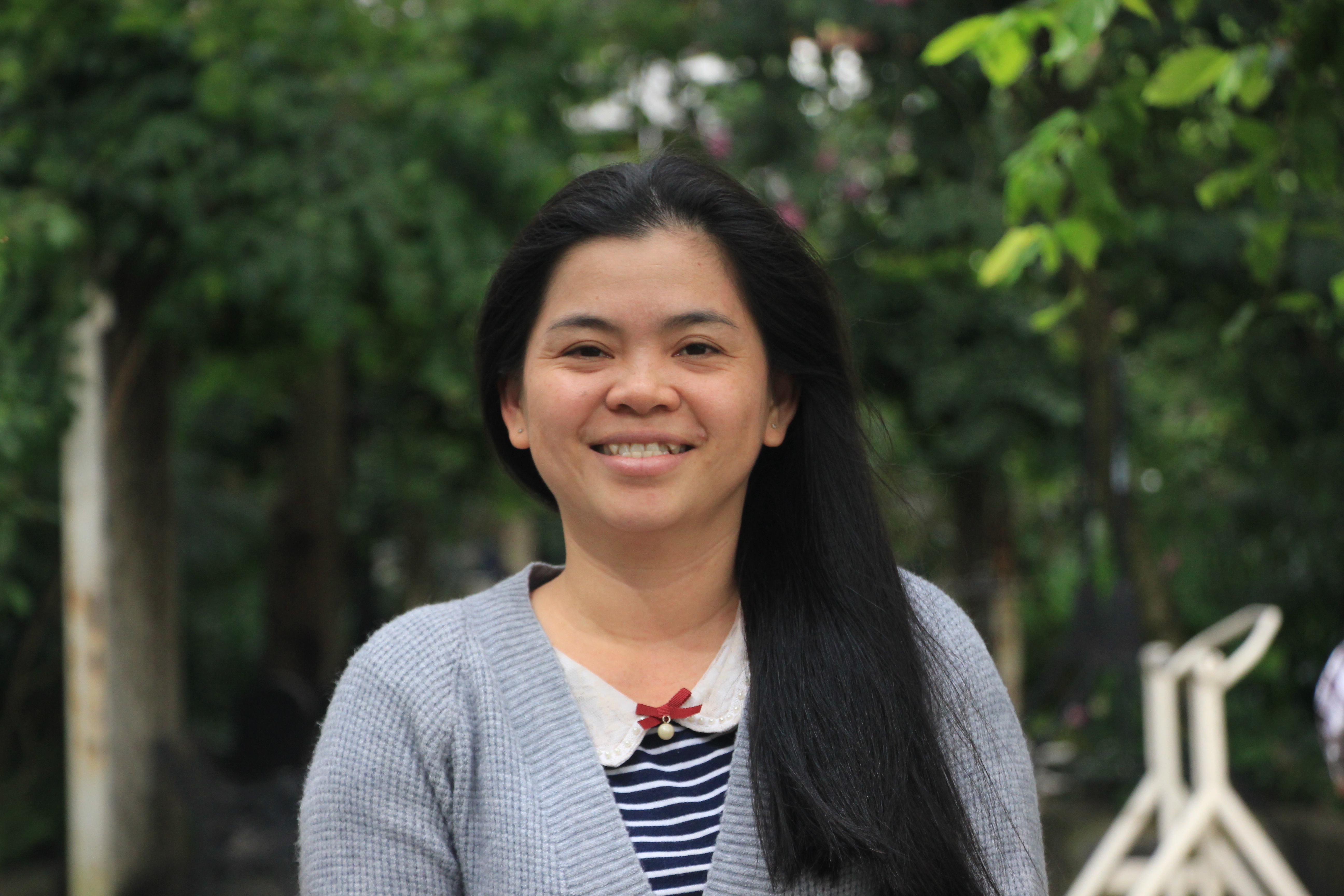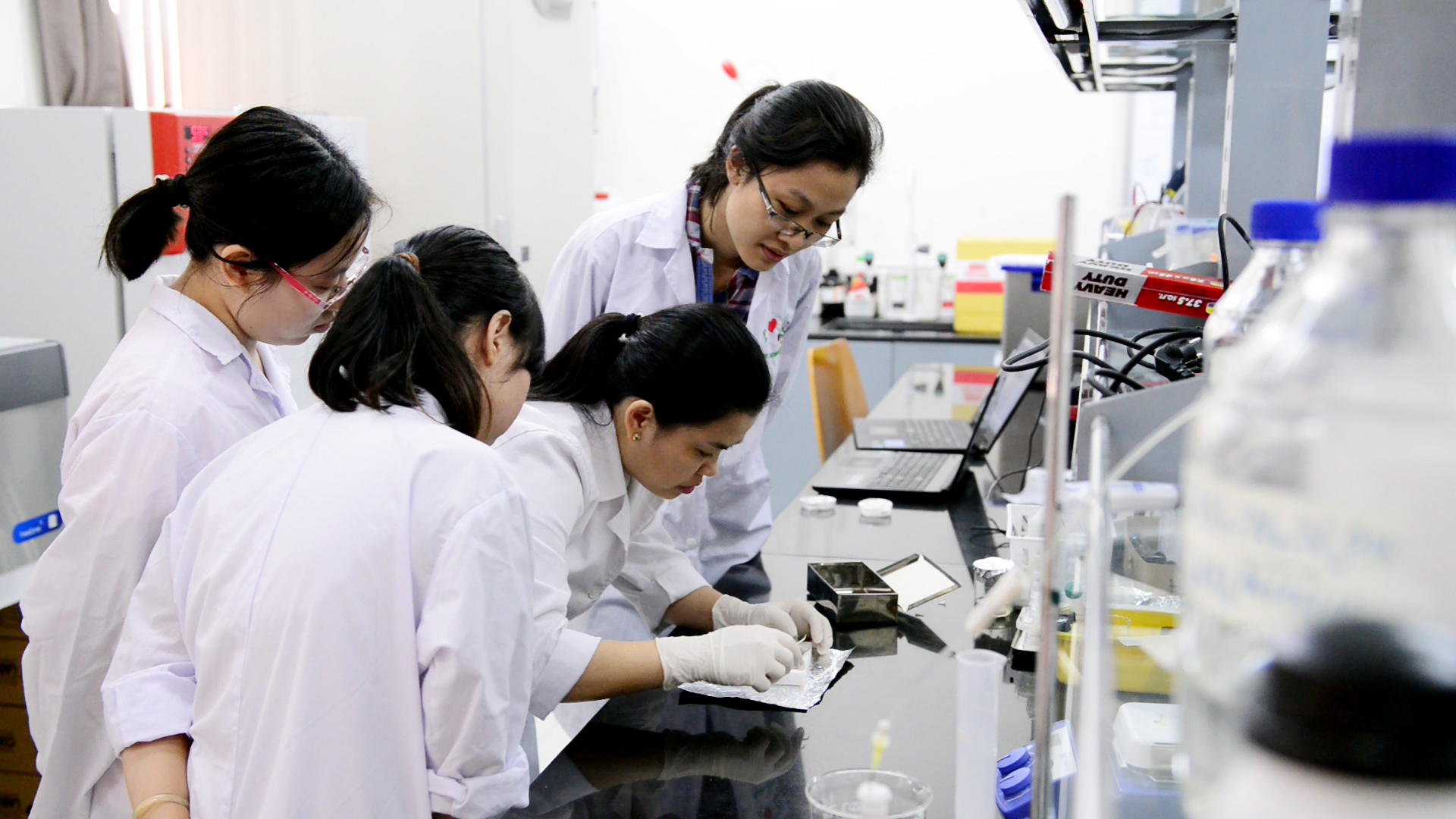Dr. Nguyen Thi Hiep, a researcher and lecturer in biomedical engineering at the International University under the Vietnam National University - Ho Chi Minh City, spoke with Tuoi Tre News after winning the third annual ASEAN - U.S. Science Prize for Women.
The US$20,000 cash prize was sponsored by ASEAN, the U.S. Agency for International Development (USAID), and American safety consulting and certification company Underwriters Laboratories.
Nguyen Thi Hiep was born in 1981 and earned her Masters and PhD Degrees in biomedical engineering and materials at Soonchunhyang University in South Korea in 2009 and 2012, respectively.
Over her career, she’s garnered more than ten years of experience researching materials for medical applications and their interactions on cells and tissues.
In 2016, she received the L’OREAL National Fellowships’ Talented Young Science Researcher award for a research project on new discoveries related to the use of Titanium material in the restorative dentistry sector.
Speaking of her latest award, Hiep shared she was both elated and surprised at learning she’d be honored, particularly because she didn’t have much time to prepare for the competition.
“This is a competition for women under the age of 40 who do scientific research in ASEAN,” Hiep said.
“It aimed to honor individuals who have had active contributions in the field of science, as well as to encourage and motivate other female scientists in the region,” she added.
* Why do you think you were selected as the winner?
I think one of the reasons I won the prize was that I developed the regenerative medicine major in the biomedical engineering faculty at Soonchunhyang University in South Korea while earning my PhD and, later, again at the International University under the Vietnam National University - Ho Chi Minh City. That might have impressed the contest’s organizing board.
I also participate in many conferences for women where I speak about the problems women face in the world of science.
* The prize highlighted solutions for challenges on rapid urbanization in ASEAN. In your opinion, what challenges do Vietnam metropolises face and what solution can your research provide?
The urbanization process in Vietnam, like many other places, is facing serious challenges from communicable diseases.
Reality has shown that Ho Chi Minh City is developing rapidly and has hospitals which offer effective treatments. It has led to a situation that people living in other localities often travel to Ho Chi Minh City for health examination and treatment, even though it’s sometimes not necessary. Those situations increase the risk of transmission from patient to patient and probably increase dangers for the sick.
Moreover, migration from rural to urban areas can increase the growth of infectious bacteria. People living in different regions have different constitutions, and a bacteria transmitted through many bodies is harder to kill. The consequence is “hotbeds of disease” that can be hard to deal with.
 |
| Dr. Nguyen Thi Hiep – Photo: Dong Nguyen/ Tuoi Tre News |
One of the solutions for this is to reduce the pressure on hospitals in cities. We are currently working on at-home medical devices which can help doctors diagnose and monitor patients from a distance.
After measuring vital signs like blood pressure, pulse rate, and respiration rate, the devices will send data to patients’ and doctors’ mobile phone, websites, or servers at a hospital.
Doctors will then be able to diagnose patients’ conditions and prescribe suitable medications and treatments based on the data they receive. If the situation is not dangerous, patients will be advised to stay home for treatment and rather than visit a hospital.
We also hope to provide this solution for navy, islanders, and fishermen.
* In your opinion, what are the disadvantages and advantages for women in science?
I think the biggest challenge for women in science is balancing their passion with their family responsibilities. Family has been an important and challenging responsibility for me. Luckily, I always have support from my schools, colleagues, family, and husband.
On the other hand, family does provide me with the motivation to work harder. There are times I am completely focused on working but after a few weeks, I find myself completely “saturated.”
One thing that can be considered an advantage for women when they work in science is that they are able to develop the softness, sensitivity, and patience needed to solve problems effectively.
|
Dr. Nguyen Thi Hiep was selected from over 60 applicants from across ASEAN for the ASEAN - U.S. Science Prize for Women. Her work to develop biomaterials can enable people in Vietnam and across ASEAN to use at-home care solutions which can reduce the pressures placed on urban healthcare systems. Dr. Hiep represents the best and the brightest among ASEAN's talented scientists. By winning the Prize, she serves as a role model for other female scientists and can inspire young women to pursue science and technology careers. |
Like us on Facebook or follow us on Twitter to get the latest news about Vietnam!



















































